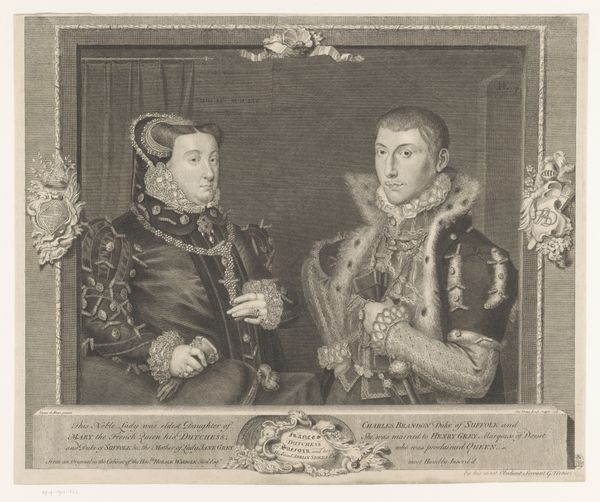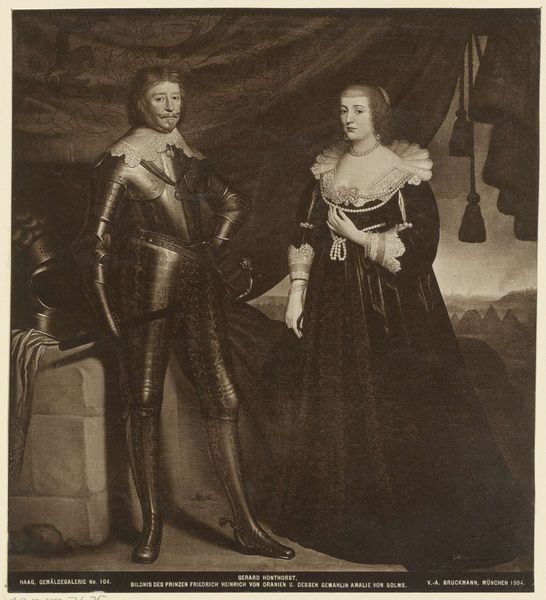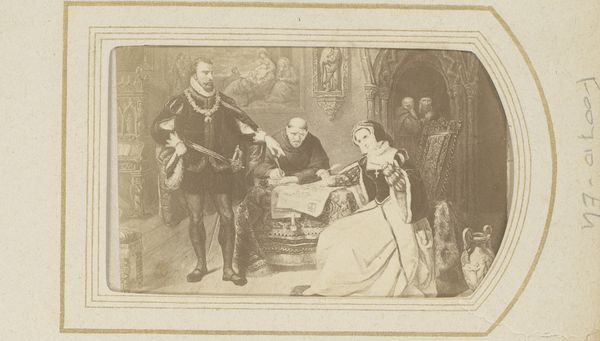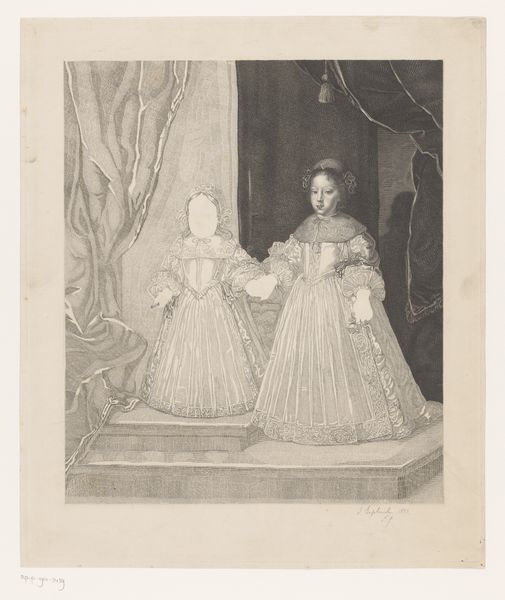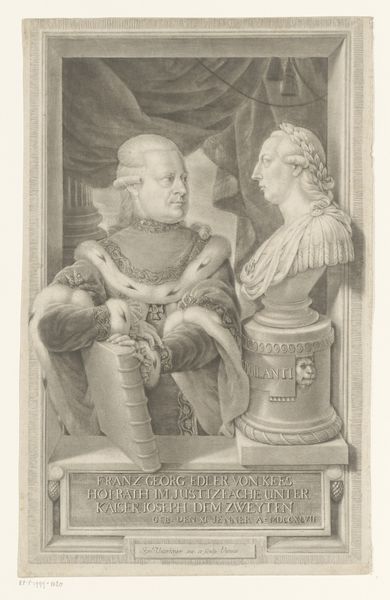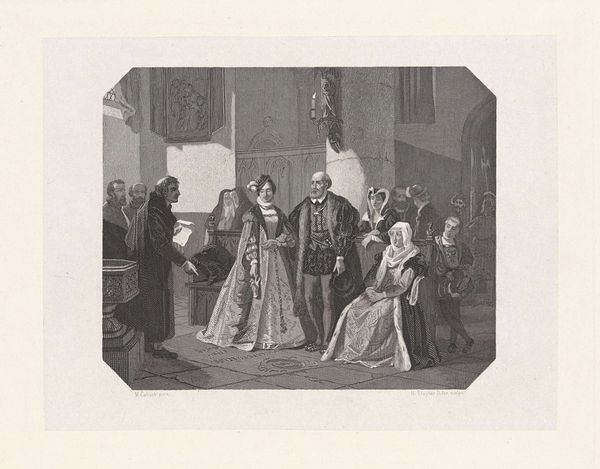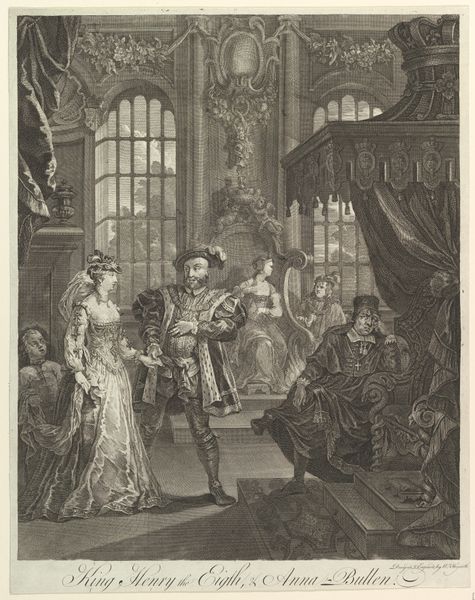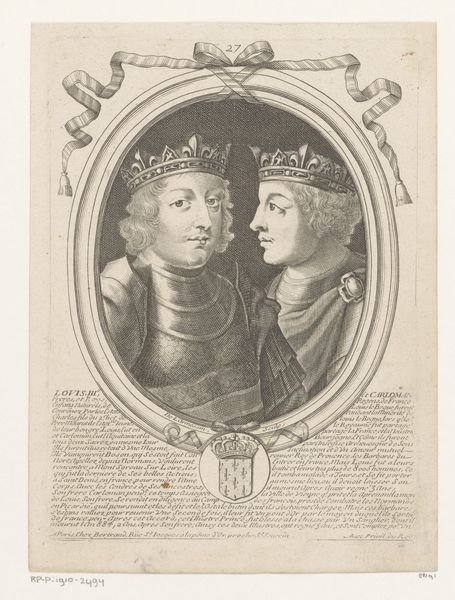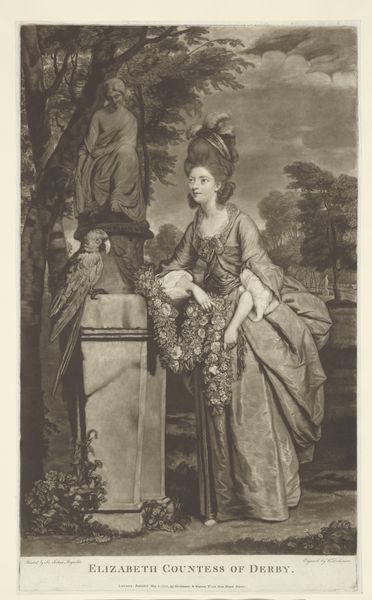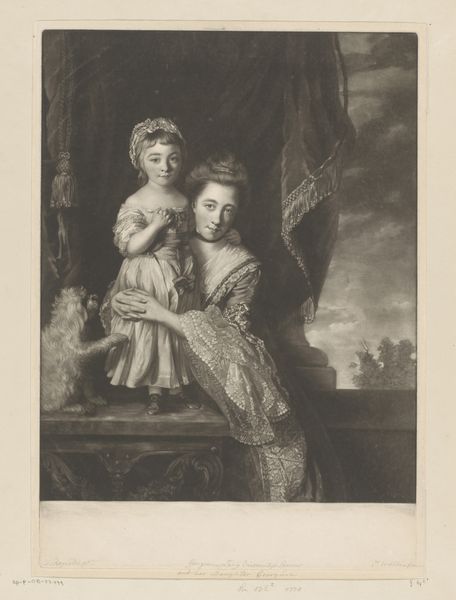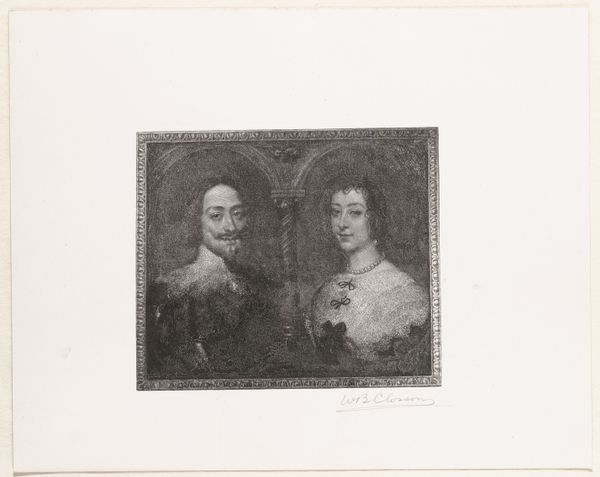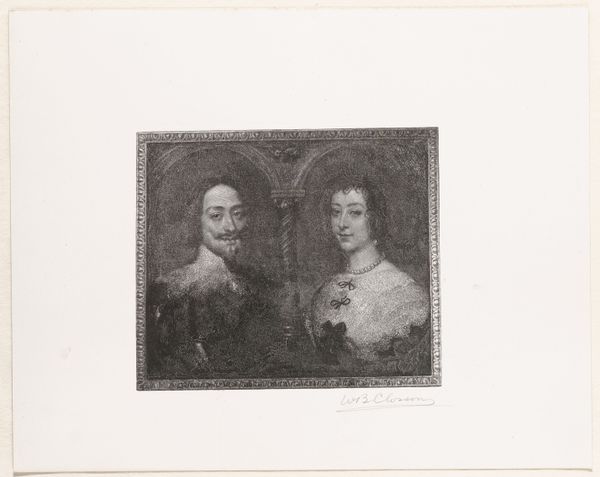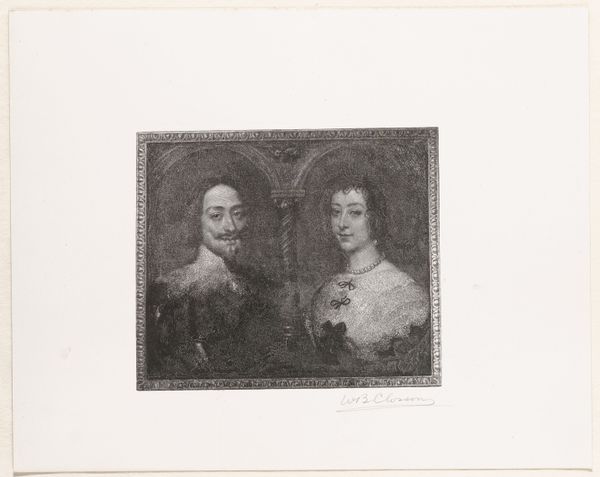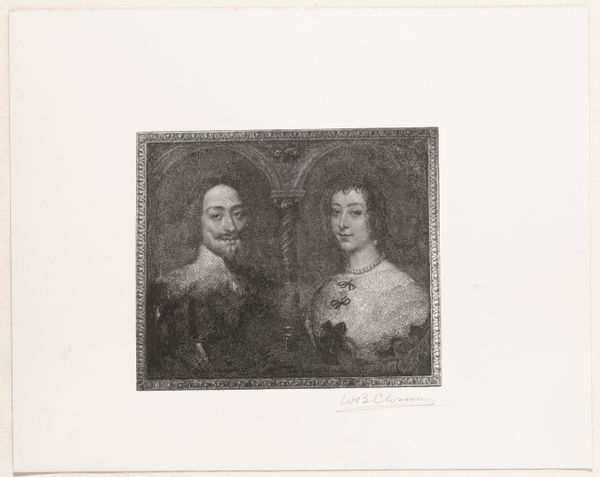
engraving
#
portrait
#
baroque
#
history-painting
#
engraving
#
realism
Dimensions: height 480 mm, width 568 mm
Copyright: Rijks Museum: Open Domain
Editor: This is "Portret van Maria Tudor en Charles Brandon," or Portrait of Mary Tudor and Charles Brandon, an engraving by George Vertue, created in 1748. The formality of the piece strikes me; the subjects seem very contained within that frame, almost like a staged play. How would you interpret it? Curator: Contained is a great word, it resonates. But to me, that containment *is* the theatre, or the performance itself! Think of royal portraiture then. It wasn't just documentation, darling. It was carefully curated propaganda. Virtue, quite wryly don’t you think, hints at that performative aspect by literally placing them on stage, encased in a faux proscenium. What do *you* see within that staging? The details… Editor: Well, the way they’re holding hands feels significant… and she’s got this intense expression on her face. It feels a bit… like there's a secret between them? Curator: A secret indeed, or at least, a carefully constructed narrative. The Tudor dynasty was built on spectacle, intrigue… sometimes literally on the graves of its enemies! Think of what Vertue chose *not* to depict. The axes, the betrayals! Instead, he focuses on this demure hand-holding, a vision of concord intended for public consumption. A beautiful illusion, really. Isn't that Baroque? A sort of reality-adjacent… suggestion? Editor: It's fascinating to think about art as deliberate image control and to read into the historical context and its reflection on display, it enriches its true essence! Thank you! Curator: My absolute pleasure! The fun truly lies in the hunt! Always look a little closer.
Comments
No comments
Be the first to comment and join the conversation on the ultimate creative platform.
